Moments of Joy and Sadness: Reflecting on Daily Life
This post contains paid and/or affiliate links. I make a small commission at no extra cost to you. Please see our Privacy Policy.
Our lives are full of joy and sadness, creating a deep story. It’s important to stop and think about our feelings. This article invites you to start a journey of self-discovery.
We’ll look at the power of reflecting on daily life, building emotional resilience, and finding meaning in our feelings.
Learning from the Pixar film Inside Out, we’ll see how sadness helps us grow. We’ll also see how self-reflection can change us, showing the good in everyday moments.
We’ll talk about gratitude and appreciation to connect more with now. We’ll learn to enjoy life’s simple things and use our senses to feel more joy.
Join me as I explore mindfulness and resilience. Let’s make our daily life clearer, kinder, and more meaningful.

The Impact of Sadness On Our Life
Navigating human emotions is key in the Psychology of Behavior. The Pixar movie Inside Out shows how Sadness shapes our lives. It’s a deep dive into emotions.
Lessons from the Movie “Inside Out”
In “Inside Out,” Riley faces significant changes in her life. Joy, Sadness, Anger, Disgust, and Fear all try to control her feelings. Sadness is a critical player in Riley’s story.
The film shows Sadness isn’t just a bad feeling. It’s crucial for Emotional Resilience. Sadness helps Riley deal with loss and return to her family.
The Necessity of Sadness for Emotional Resilience
Sadness and Joy collaborate in the film. They help us maintain our balance, and we are emotional; we gain a greater understanding of ourselves and the world’s strength.
“Inside Out” teaches us Sadness isn’t a sign of weakness. It’s part of the Psychology of Behavior. Understanding our emotions helps us be resilient through life’s ups and downs.
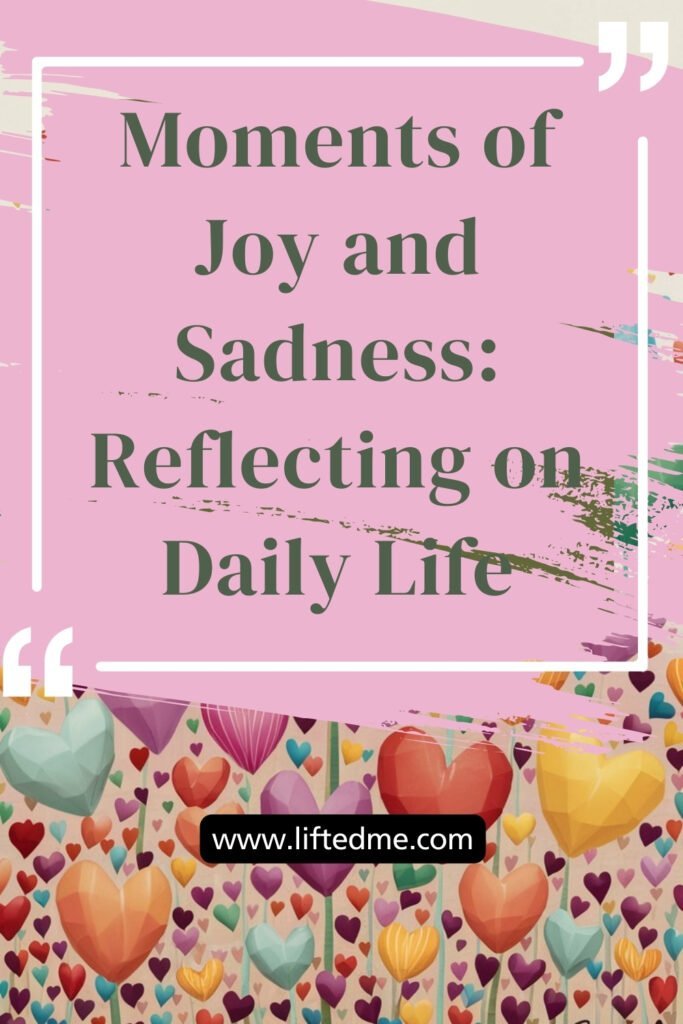
The Power of Self-Reflection
Learning to reflect on ourselves can change our lives. It helps us understand our thoughts, feelings, and experiences deeply, leading us to live more purposefully and become more self-aware.
Benefits of Daily Introspection
Reflecting every day has many benefits. It makes us 30% more aware of ourselves. It also boosts our emotional health by 25% and helps us remember things better by 20%.
It makes us more grateful, increasing our appreciation for good things by 35%. This practice helps us grow personally, making us 15% better at learning and improving.
It helps us do what we aim for, making us 22% better at reaching our goals. Activities like journaling, meditation, or being creative can significantly improve our emotional health.
It helps us handle stress and control our feelings better.
“The greatest weapon against stress is our ability to choose one thought over another.” – William James
Starting this journey of self-reflection helps us find our true purpose. It makes our daily actions match our life goals. This leads to a more fulfilling life.

Finding Joy in the Ordinary Moments
Our world often focuses on big events and unique experiences. Yet, finding joy in everyday life is key to lasting happiness. Research shows that appreciating small pleasures can make a big difference.
“Joy in the Ordinary” has touched many, including the author, who felt stuck in a rut. Matthew McConaughey and others taught them to focus on family and find joy in daily moments.
Joy isn’t about big events; it’s a feeling from doing what we’re meant to do. It’s a choice that can grow into a constant feeling, even when life gets tough.
“Joy is not in things; it is in us.” – Richard Wagner
Simple moments, like a calm morning or a beautiful sunset, can bring great joy. Being mindful and thankful for these moments can make us feel fulfilled and strong.
The author’s story teaches us that joy isn’t found in big things. It’s in the everyday moments that make up our lives. This reminds us that happiness often comes from the small things we overlook.
| Statistic | Insight | Industry Segment |
|---|---|---|
| Approximately a decade ago, the phrase “Joy in the Ordinary” began resonating with the author, influencing their perspective on daily life. | The author’s personal experience with the concept of finding joy in the ordinary moments of life. | Personal Development and Self-Reflection |
| Research indicates that individuals who actively engage in savoring small pleasures have higher levels of resilience and greater emotional well-being. | The benefits of savoring small pleasures and finding joy in everyday experiences. | Mental Health and Well-being |
| Grateful individuals tend to experience increased happiness, satisfaction with life, and improved mental health. | The positive impact of cultivating gratitude on overall well-being. | Mental Health and Well-being |
Embracing “joy in the ordinary” helps us appreciate the present and its small joys. It’s a journey of self-discovery that can lead to a more joyful life, even with challenges.
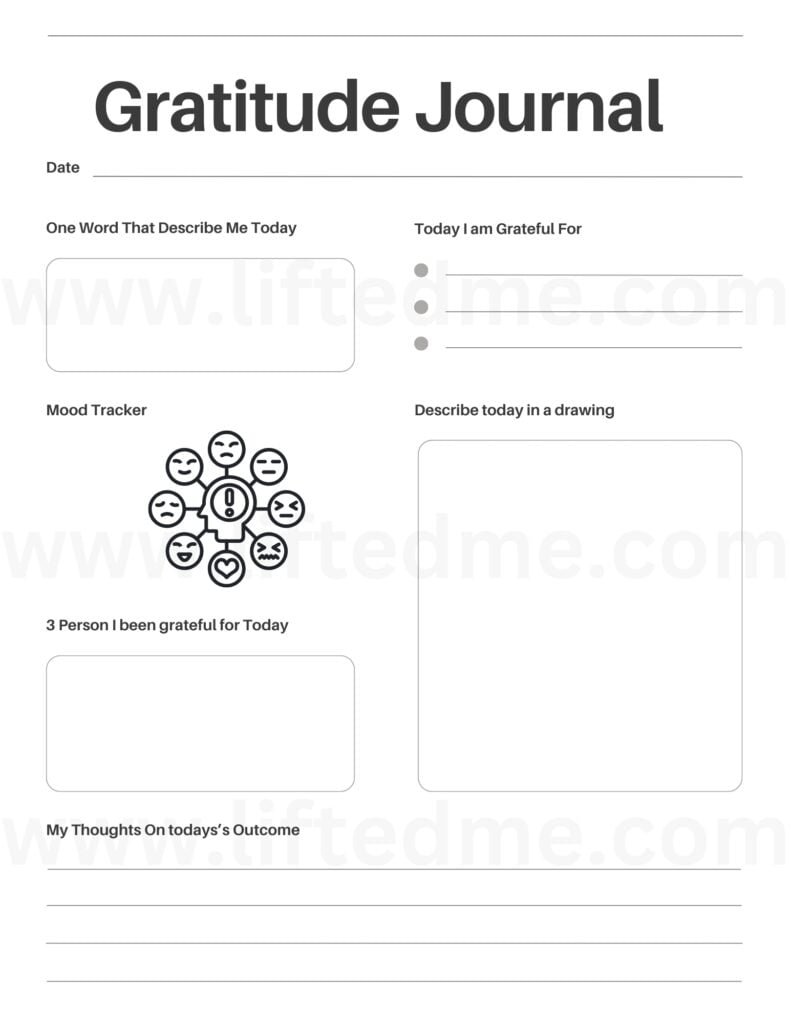
Gratitude and Appreciation
Seeking joy and well-being, we find power in gratitude and appreciation. By focusing on the good things in our lives, we notice the simple pleasures we often miss.
This mindset helps us bounce back stronger and builds better connections with people and ourselves.
Appreciating Life’s Simple Pleasures
Showing thanks, whether in a journal, with family or just taking a moment, changes us. People who often feel gratitude have less pain, sleep better, feel more energetic, and have a stronger immune system.
- Gratitude makes relationships stronger and helps us feel part of a community.
- Writing down three things you’re thankful for each day helps grow gratitude.
- Being thankful at work makes employees happier and feel more connected.
Embracing the simple pleasures in life opens the door to more happiness and satisfaction. It could be a sunny day, laughing with friends, or quiet time alone.
These moments of appreciation change how we see things and make us stronger.
“Gratitude is the healthiest of all human emotions. The more you express gratitude for what you have, the more likely you will have even more to express gratitude for.” – Zig Ziglar
Through life’s ups and downs, gratitude guides us to a positive mindset and deeper connections. Being thankful brings us more joy, resilience, and a more rewarding life.
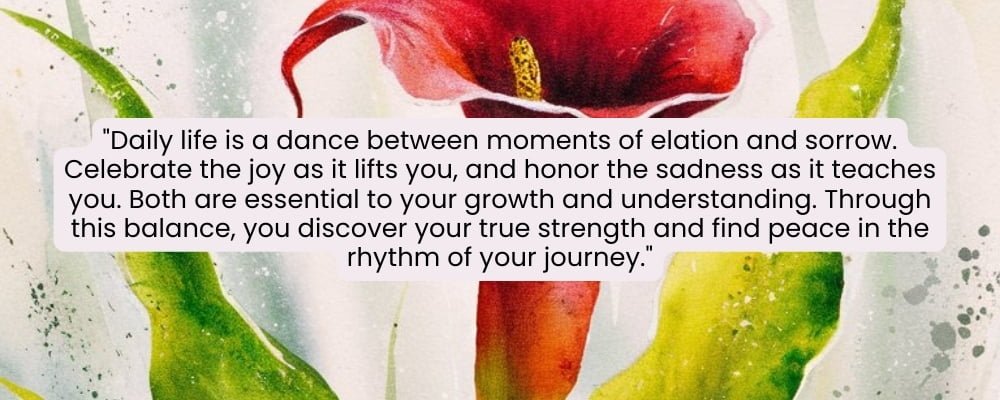
Engaging the Five Senses for Joy
It’s easy to lose touch with the present and the joys around us. Focusing on our five senses—sight, touch, smell, taste, and hearing—helps us stay in the moment and find joy in our daily lives.
Studies show that paying attention to our senses can make us happier and more mindful. Enjoying the colors of a sunset or the taste of a homemade meal lets us dive deep into the present moment.
- Engage your sense of sight by noticing the details around you, like the patterns on a leaf or the design of a building.
- Explore the sense of touch by feeling the textures of everyday things, like a stone or a blanket.
- Awaken your sense of smell by smelling the air and noticing the scents of coffee or flowers.
- Delight your sense of taste by enjoying a meal, focusing on the flavors and how they mix on your tongue.
- Tune in to your sense of hearing by listening to the sounds around you, like leaves rustling or birds singing.
Using all five senses helps us appreciate the beauty and wonder in our daily lives. This practice connects us to the present moment. It also helps fight stress and anxiety.
When you feel overwhelmed or disconnected, take time to enjoy the sensory delights around you. Let your senses lead you back to joy and mindfulness in everyday moments.
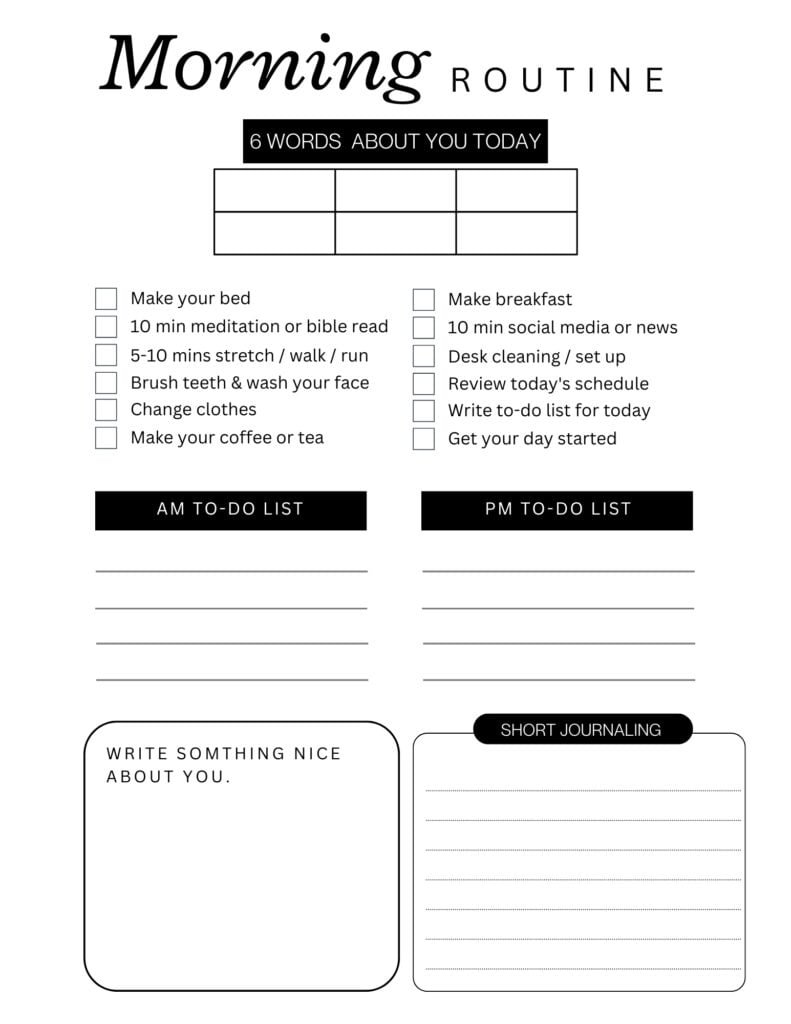
Moments of Joy and Sadness: Reflecting on Daily Life
Life is full of both joy and sadness, like the tides. We often wish for constant happiness, but we need all emotions to be fully alive. This mix of feelings helps us stay strong and balanced.
Studies show that depression often matches our life’s ups and downs. Losing someone dear, ending a relationship, having money troubles, feeling rejected, getting sick, or facing disappointments can trigger it.
Poor eating, not moving enough, too much stress, setting unrealistic goals, and lacking purpose can also make us feel down.
But sometimes, depression comes with no clear reason. Our mood can change without any big changes in our life. This shows how complex our feelings can be.
We should be kind to ourselves when we feel sad or happy. “Inside Out” shows us that sadness is important. It helps us deal with tough times and makes us stronger.
“The most authentic thing about us is our capacity to create, to overcome, to endure, to transform, to love, and to be greater than our suffering.”
– Ben Okri
Accepting all emotions helps us see life more clearly. Simple things like a warm coffee, laughing with friends, or marveling at nature bring us joy.
These moments can help us stay grounded in life’s ups and downs.
Reflecting on life isn’t about always being happy. It’s about understanding and managing our feelings with kindness and strength. This way, we can enjoy the full beauty of being human.
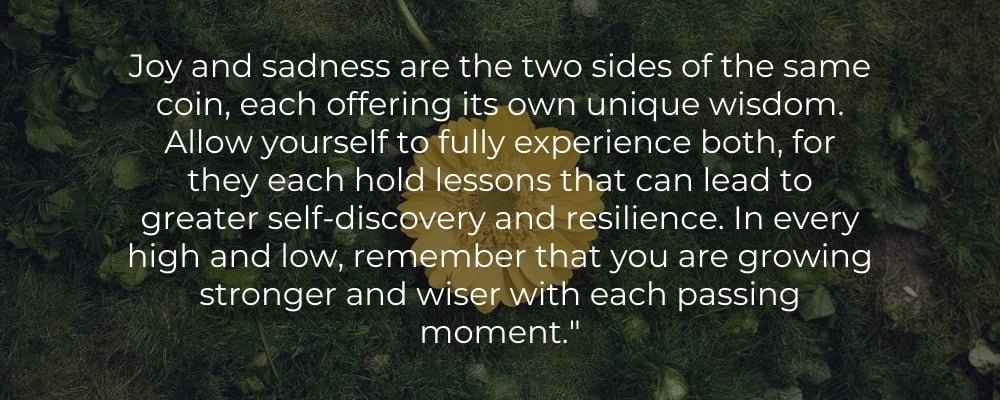
Daily Reflection Practices
In today’s fast world, daily reflection is key for our well-being and growth. Taking time for self-reflection helps us become more aware of ourselves, our feelings, and our goals.
It builds emotional strength and a clear sense of purpose.
Establishing Routines for Mindfulness
Having a daily reflection practice can change our lives. It could mean journaling, meditating, or just taking a walk with a reflective mindset.
These activities help us deal with life’s challenges more clearly and smoothly.
- Prioritize time for daily reflection, even if it’s just 10-15 minutes.
- Experiment with different reflection techniques, such as gratitude journaling or guided visualizations.
- You can integrate reflection into your self-care routine, such as incorporating it into your morning or evening rituals.
- Seek out accountability partners or join online communities to foster a supportive environment for your reflection journey.
By setting mindful routines, we learn more about ourselves and our feelings. This leads to better self-care, personal development, and a deeper understanding of daily reflection and mindfulness.
| Reflection Category | Guiding Questions |
|---|---|
| Physical Well-being | Am I adequately nourished, hydrated, and rested? How can I better support my physical needs? |
| Emotional Awareness | What emotions am I experiencing, and how can I process them constructively? |
| Spiritual Fulfillment | Do I feel a sense of purpose and connection to something greater than myself? |
| Self-Compassion | Am I treating myself with kindness and understanding, or am I being overly critical? |
| Relationships and Authenticity | Are my relationships aligned with my values, and am I showing up authentically? |
By adding these reflection practices to our daily lives, we improve our self-care, personal development, and mindfulness, leading to a more fulfilling and meaningful life.
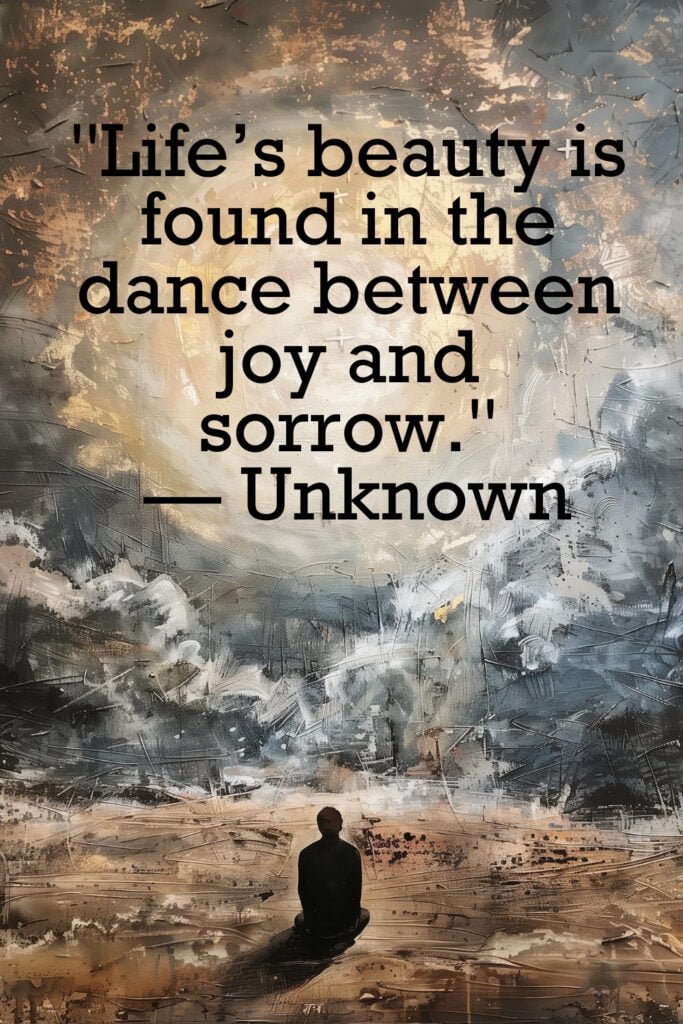
Thought-Provoking Reflection Questions
In today’s fast world, it’s easy to miss the deeper parts of our lives. That’s why we offer a set of reflection questions to help you find deeper self-discovery and personal growth.
These questions touch on many topics, from daily events to our deepest values and dreams.
Adding these reflection questions to your daily life can make you more mindful and help you understand yourself better.
This habit can clear your mind, question your beliefs, and broaden your views, leading to a deeper understanding of yourself and the world.
- What were the most meaningful experiences of the day, and what did they teach you about yourself?
- What are your core values, and how well do your daily actions align with them?
- What are your biggest dreams and aspirations, and what steps can you take to bring them closer to reality?
- When was the last time you stepped out of your comfort zone, and how did it impact your personal growth?
- What habits or routines could you cultivate to foster greater self-awareness and personal development?
The journey of self-discovery never ends, and these questions are just the beginning. Take time to explore your thoughts, feelings, and experiences deeply.
Let the insights you find inspire you to live more intentionally and fully.
Sharing Joy with Others
The joy we feel every day is meant to be shared, not kept to ourselves. By sharing it, we make its impact bigger and spread happiness far and wide. Sharing joy, positive relationships, and feeling like part of a community help us make lasting changes.
Research shows that 75% of people feel happier when they make joyful moments for others and the community.
It could be surprising a friend, listening to a coworker, or helping at a local group. Sharing joy changes both the giver and the receiver deeply.
When we celebrate and lift up joy, we make our lives richer and help those around us feel better. This effect can make others chase their dreams, spread kindness, and add more joy to their lives.
We can all work together to make a happier, connected world, one happy moment at a time.
FAQ
What is the main focus of the article?
The article discusses how joy and sadness affect our lives and shows how thinking about these feelings can help us grow and bounce back stronger.
What insights does the article draw from the movie “Inside Out”?
The article takes lessons from the Pixar movie Inside Out. It discusses the need for sadness, the value of thinking deeply, and finding happiness in everyday moments.
What are the benefits of practicing self-reflection?
Regular self-reflection makes us more aware of ourselves. It helps us keep important memories, be thankful, and learn new things. It also helps us manage feelings, set goals, and find our purpose in life.
How can we find joy in the ordinary moments of life?
The article suggests looking for joy in the little things. This includes enjoying quiet mornings, the beauty of nature, and the calming effect of music.
What are the benefits of cultivating gratitude and appreciation?
Being thankful changes our focus on the good things in life. It makes us more positive and helps us notice the simple joys often missed in our busy lives.
How can engaging the five senses help cultivate joy?
The article suggests a grounding exercise. It involves using all five senses – sight, touch, smell, taste, and hearing – to find joy and stay in the moment.
How can the coexistence of joy and sadness contribute to personal growth?
The article says it’s important to accept both joy and sadness. They can be together, and each has its own role in making us more balanced and resilient.
What are some daily reflection practices that can foster mindfulness and self-care?
The article discusses different ways to reflect, such as setting time for thinking, writing in a journal, meditating, and talking deeply with others. These help us better understand ourselves, question our beliefs, and see things from new angles.
What type of reflection questions can be used for personal growth?
The article lists deep questions for reflection. They cover daily events, values, goals, and deep desires.
How can sharing joy with others create positive ripple effects?
The article gives ideas on sharing joy. This includes making happy moments for those we care about, listening to their wins, spreading kindness every day, encouraging passions, and helping the community.
Source Links
- Noah Kahan: Putting Words to My Mental Health Struggles Saved Me
- Can little actions bring big joy? Researchers find ‘micro-acts’ can boost well-being
- Nostalgia and Well-Being in Daily Life: An Ecological Validity Perspective
- Nostalgic Depression – Can Nostalgia Be a Mental Disorder?
- Reflection, the human superpower



